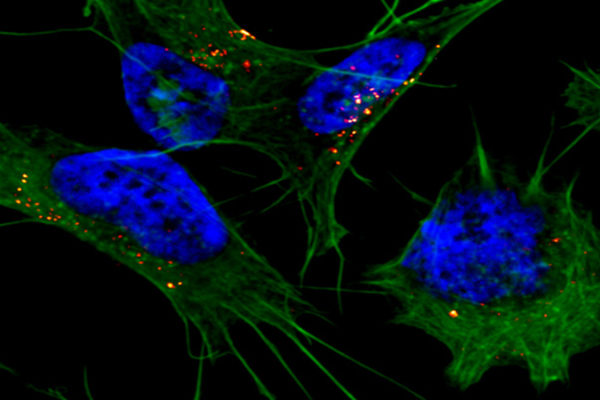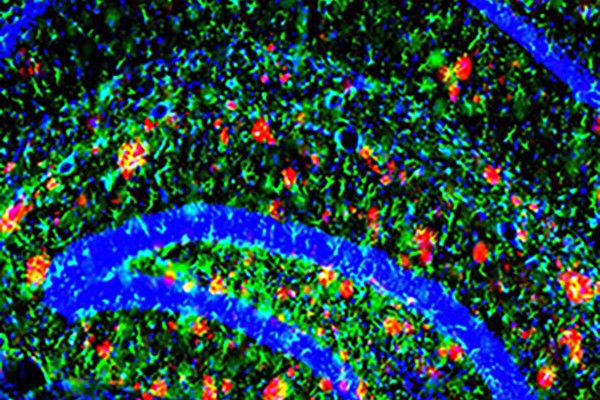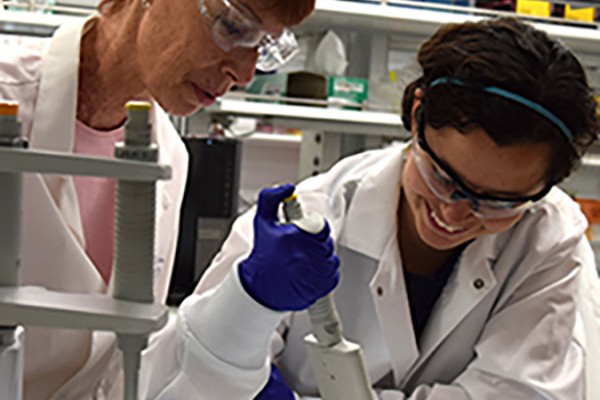The shape-shifting protein behind Alzheimer’s disease
New research from Washington University in St. Louis shows that the protein behind Alzheimer’s disease shape-shifts, changing its internal structure in order to infiltrate brain cells and become toxic.
Brain’s ability to dispose of key Alzheimer’s protein drops dramatically with age
The greatest risk factor for Alzheimer’s disease is advancing age. Researchers at Washington University School of Medicine in St. Louis have identified some of the key changes in the aging brain that lead to the increased risk. The changes center on amyloid beta 42,
a main ingredient of Alzheimer’s brain plaques.
Midlife changes in Alzheimer’s biomarkers may predict dementia
Studying brain scans and cerebrospinal fluid of healthy
adults, scientists have shown that changes in key markers of
Alzheimer’s disease during midlife may help identify those who will
develop dementia years later, according to new research.
Scientists find new link between diabetes and Alzheimer’s
Researchers have uncovered a unique connection between
diabetes and Alzheimer’s disease, providing further evidence that a
disease that robs people of their memories may be affected by elevated blood sugar, according to scientists at
Washington University School of Medicine in St. Louis.
New target identified in fight against Alzheimer’s, multiple sclerosis
Highlighting a potential target in the treatment of
multiple sclerosis (MS) and Alzheimer’s disease, new research suggests
that triggering a protein found on the surface of brain cells may help
slow the progression of these and other neurological diseases.
Protein that rouses the brain from sleep may be target for Alzheimer’s prevention
A protein that stimulates the brain to awaken from
sleep may be a target for preventing Alzheimer’s disease, a study by School of Medicine researchers suggests. David M. Holtzman, MD, head of the Department of Neurology, is the study’s senior author.
Rare gene variants double risk for Alzheimer’s disease
A team led by researchers at the School of Medicine has identified variations in a gene that double a person’s risk of developing Alzheimer’s disease later in life. Pictured are Carlos Cruchaga, PhD (left), and Alison M. Goate, DPhil, who led the research effort.
Unlikely gene variants work together to raise Alzheimer’s risk
Studying spinal fluid from people at risk for Alzheimer’s disease, School of Medicine researchers have found that a gene variation that had not been considered risky actually can increase the chances of developing Alzheimer’s disease when it occurs in tandem with another gene variant known to elevate risk. Shown is an image of a brain with a buildup of amyloid deposits (highest amounts in yellow and red) that collect to form senile plaques in patients with Alzheimer’s.
Alzheimer’s progression tracked prior to dementia
A long-term study of older adults led by Anne Fagan (right) has helped validate a new system for identifying and classifying older adults with preclinical Alzheimer’s disease. Many researchers think this stage of the disease, which can last a decade or more, is critical window for slowing or stopping Alzheimer’s treatments.
Genetic markers ID second Alzheimer’s pathway
Researchers at Washington University have identified a new set of genetic markers for Alzheimer’s disease that point to a second pathway through which the disease develops. Much of the genetic research in Alzheimer’s centers on amyloid-beta, a key component of brain plaques in people with the disease. But the new study identified several genes linked to the tau protein, which is found in tangles.
View More Stories



